Movie Review: Chunhyang
by refresh_daemon
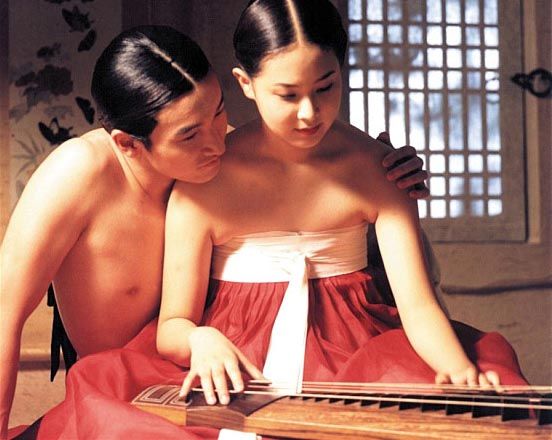
![]()
Director Im Kwon-taek‘s Chunhyang is a notable film for many reasons. Principally, it is perhaps the most formalistically adventurous works from the director, nearing his hundredth film. It is also one in a long line of adaptations of the Joseon-era pansori, “Chunhyangga,” perhaps one of the best known and most widely appreciated traditional folk story-songs in Korea.
The legend of Chunhyang has a long reach in the Korean arts: in addition to continuing performance by pansori artists even today, the story has been adapted into written, drawn and cinematic media, including over a dozen feature film adaptations. Furthermore, the story continues to inspire tertiary works like the television drama Delightful Girl Chun-hyang as well as cinematic narrative deconstructions like The Servant.
Hailing originally from 17th or 18th century Joseon, Chunhyangga is a story that bears some similarities to Shakespeare’s Romeo and Juliet because of a forbidden romance and secret wedding. However, the story itself is more of a protest against the perversion of Confucian ideals into an unjust class system and abuse of power, having been conceived under the strict hierarchical Confucian-influenced Joseon society, a five-century-long dynasty that is the direct predecessor to modern Korea. And perhaps because the strains of hierarchical Confucian-inspired culture continue to affect Koreans to this day, the story of Chunhyang remains popular to this day.
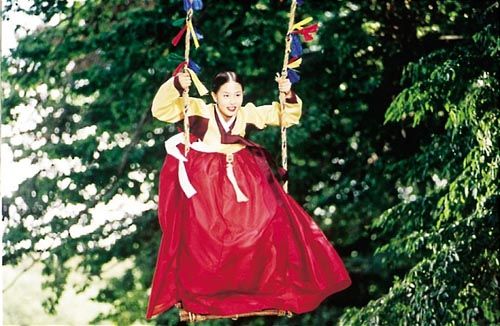
The titular Chunhyang (Lee Hyo-jeong) is a daughter of a courtesan and a governor. Because only being the offspring of two nobles in Joseon society gave you noble status and courtesans were considered peasant servants, despite their court skills, Chunhyang herself is of the servant class. While normally even being the illegitimate offspring of a noble would afford Chunhyang and her mother Wolmae (Kim Seong-nyeo) some benefit and comforts, he passed away, leaving the pair to their own devices.
But the story actually begins from the viewpoint of the present governor’s son, Lee Mongryong (Jo Seung-woo), a studious, talented, and earnest, if arrogant, youth. One day, he gets permission to take a day trip and heads off to a pavilion for inspiration when he spies Chunhyang on a swing and approaches her as a courtesan. But having been raised by her mother like a noble, despite her lowly status, she resists him and demands that he marry her and promise eternal fidelity if he truly desires a relationship with her. Won over by both her intellect and beauty, he consents to an instant marriage, but in secret because of possible disowning by his parents.
As the newlyweds engage in post-nuptial affections, their relationship is put to the test when Mongryong’s father is promoted to the king’s cabinet in Seoul. Mongryong cannot take Chunhyang with him because if his marriage to a peasant is discovered, he will be disowned, leaving him a vagabond. So he promises that he will study hard for three years and pass the royal examination, gaining a position in the king’s government, and then return for Chunhyang.
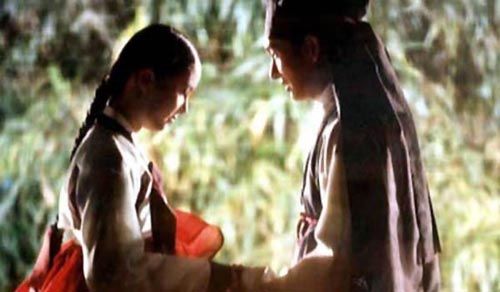
Unfortunately, after a bitter farewell, a new governor (Lee Jeong-hun) arrives and desires Chunhyang, whose beauty is renowned in Namwon, and orders her to submit to him as a peasant should to a noble. However, Chunhyang rebels, affirming her duty as a wife to remain faithful to Mongryong and questioning why Governor Byun would ask her to break the one of the five major Confucian relationships. Enraged by her throwing the very fundamentals on which his whole power rests in his face and by her intelligent defiance, he orders her beaten and sentences her to death.
Meanwhile, Mongryong passes the government test with highest marks, becomes the king’s emissary and is sent back to Jeolla province, where he left Chunhyang three years ago, to report on the state of the kingdom in the guise of a vagabond noble, arriving in Namwon on the eve of Governor Byun’s birthday celebration and Chunhyang’s execution.
The story itself is clearly a criticism of the abuse of power by the noble class, especially as we see Byun and his chief officials use their power for selfish gain while Mongryong reaffirms the basis of the system by claiming that the officials and Byun were supposed to use their power to benefit the whole populace rather than for personal gain. Along the same lines, the story also critiques the separation of the classes as well, making the listener root for the cross-class relationship between the two.
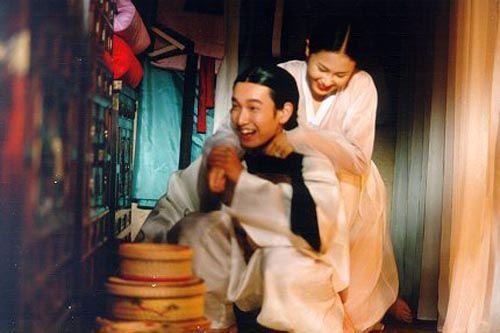
It’s not a complicated story and it’s obvious why regular folk, both in the past and now, have an appreciation for the story as it speaks to the abuse of power of the elite at the expense of the average person, both on an individual and class level. At the same time, the story retains some rather patriarchal modes of thinking, including the value of female chastity, the place of a woman as a daughter, wife and mother before an individual, as well as not criticizing Mongryong’s aggressive behavior when it comes to his initial interaction with Chunhyang, eventually making Chunhyang a damsel in distress.
But for the times, this story was probably still a bit of a provocative statement, given the power of the class system of the time, and it makes sense that such criticism came from the folk form of pansori over some courtly writing.
For Im Kwon-taek, the choice to make a film about this classic tale is appropriate given his deep art-film exploration of traditional Korean culture starting in the 1980’s and especially given his enormous success with his previous pansori film, Sopyonje. And Chunhyang, being one of the most beloved of the surviving pansori epics, is an obvious choice for him.
But for Im, it wasn’t enough just to relate the tale of Chunhyang as it had been done too many times before, so instead he chooses to reframe the narrative in the context of an actual pansori show. The film opens with the pansori performer reciting part of the Chunhyang pansori before we see a bunch of students heading into the show on a class assignment, but clearly unenthusiastic about sitting down for a five hour recitation.
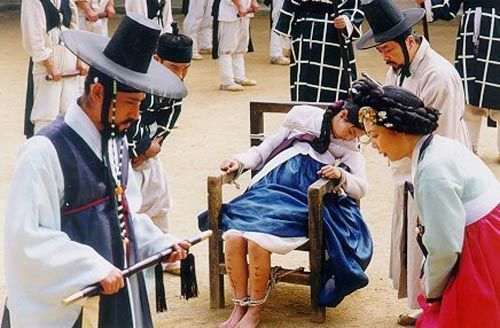
The exterior story and audience reaction to the show is rather blunt in its message about valuing the traditional arts, but rather ineffective. It undermines its message since much of the strength of this adaptation of Chunhyang comes from the cinematic interpretation, not the actual pansori performance, which is provided both in cuts to the actual performance and the audience reaction and also in voice-over narration.
For example, the point of heartbreak for Chunhyang as she reacts to Mongryong’s news about having to leave Chunhyang behind doesn’t feature the pansori singer at all and in the wake of her first winter without her husband, Im provides a visual alternative interpretation of the actual text. That the power of these moments rely on the cinematic interpretation, it renders the argument about the value of pansori null.
Im uses the pansori voice-over primarily as a transition device from the exterior narrative of the performance to the interior narrative of the Chunhyang story, and its effectiveness is hit or miss. When Mongryong’s servant Bangja (Kim Hak-yong) goes to retrieve Chunhyang, Im chooses to directly visualize the narrator’s words and the effect simply feels redundant. We are hearing and seeing at the same time and it seems unnecessary. On the other hand, a different running scene occurs where the pansori singer is narrating a conversation of some guards going to bring Chunhyang to an audience and in this scene, Im chooses to simply show the guards running, the pansori singer speaking their thoughts about Chunhyang’s uppity attitude and giving voice to what was unseen. This works.
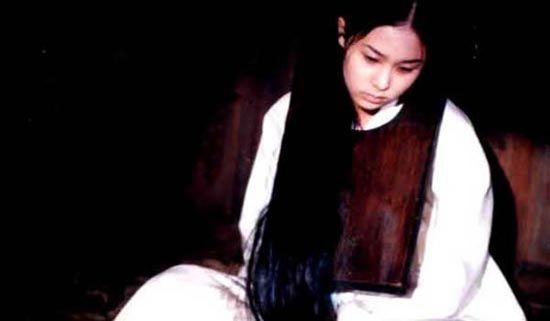
While I applaud Im for exploring this formal space, he doesn’t quite have a subtle enough hand to pull it off consistently and when he provides the collision of aural and visual redundancies, especially when the characters onscreen are speaking the same words that the pansori singer is narrating on the audio track, it simply becomes jarring, breaking the fourth wall in a rather unpleasant way.
Interestingly enough, the moments in the film that are most convincing all happen in the first half of the film as Chunhyang and Mongryong amorously initiate their marriage through and especially during the fallout when Mongryong leaves Chunhyang. In these cinematic moments, Im’s style is at its peak and even works well with the pansori voice-over. While the more intellectual critique of the abuse of power is still convincing, it’s simply a drier, less personal story and not as effective.
Although the film’s beautiful cinematography and direction highlights some of the exquisite production and art design, it also struggles with some jerky editing from time to time. The prestige that Im earned through multiple international film festival competitions seems to have given him a lot more budget to work with and it’s all up there on the screen, although the actual film stock and some of the actual crane and dolly work is still subject to Chungmuro’s limitations on the cusp of the Korean cinematic renaissance.
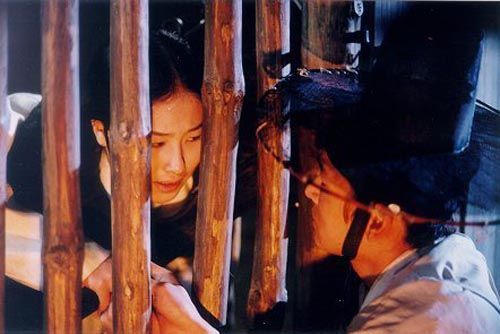
I think this all comes together to make Chunhyang a frequently beautiful and occasionally moving experience, but also a highly uneven one. Framing the story within a pansori show isn’t always effective because it sometimes results in some distractingly redundant voice-over, and the external performance, especially as the camera turns back on the audience, is overly prescriptive and rings a bit hollow. It would have worked better if we only saw the pansori performers from the perspective of the audience. As for the story of Chunhyang itself, Im presents it well, especially in the second and third acts, thanks to a healthy dose of interpretation, but for those already familiar with the tale, you’re not getting anything novel here outside of the incorporation of pansori.
A final kudo to Lee Hyo-jeong for her portrayal of Chunhyang. There isn’t much space for her to fill out the archetypal character, but she manages to convince especially as a young lover and in her moments of heartbreak.
Because of the uneven framing of the narrative in a pansori show, I hesitate to give Chunhyang a recommendation without reservations. If you don’t like pansori, you’re going to find this film unbearable and even if you do like pansori, the film’s use of voice-over sometimes works and sometimes it doesn’t. However, if you can get past the occasional unsuccessful intrusions of the pansori show into the story and can deal with the sometimes antiquated traditional story, Im Kwon-taek’s Chunhyang can still be quite an affecting couple hours. 7/10.
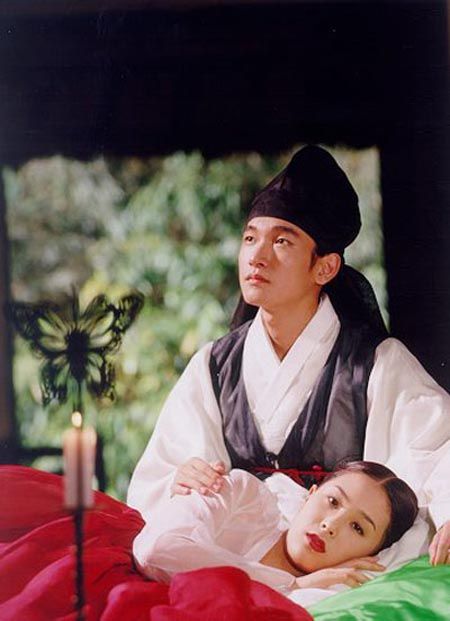
RELATED POSTS
- TV Bang-ja Chronicles is another cable hit
- Trailers and stills from TV Bang-ja Chronicles
- CGV produces a TV version of Bang-ja Chronicles
- Delightful Girl Chun-hyang: Episode 1
- Bang-ja Chronicles releases trailer
- Reworking Chyun-hyang’s folktale in Bang-ja Chronicles
- The Story of Hyang-dan: Episode 2
- The Story of Hyang-dan: Episode 1
Tags: featured
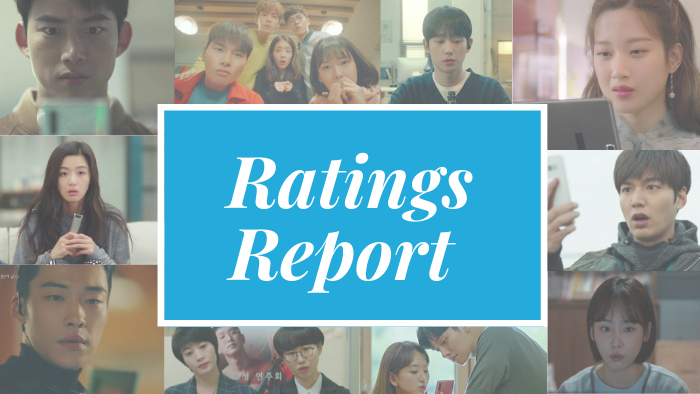
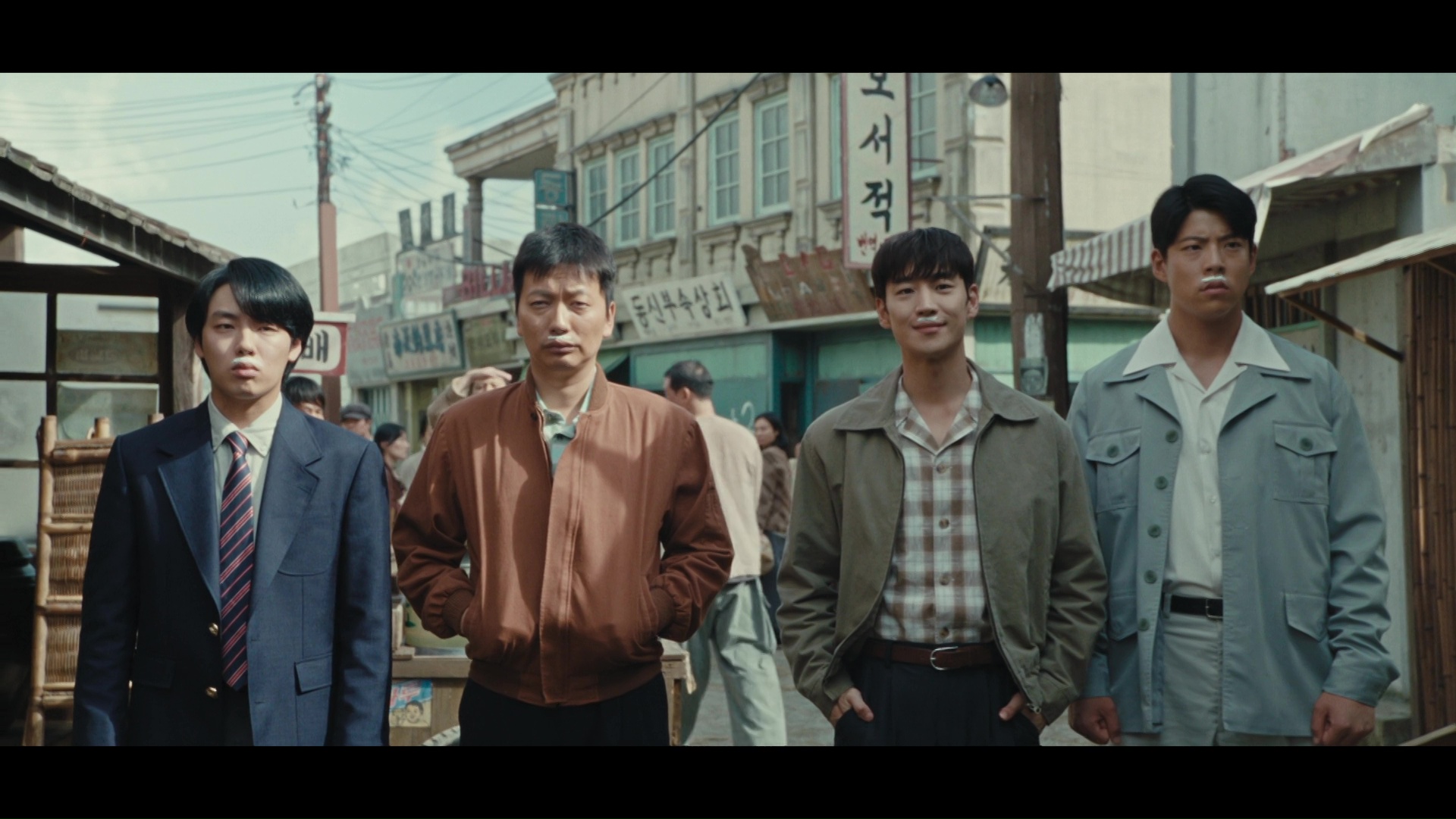
![[K-Movie Night] April Snow](http://d263ao8qih4miy.cloudfront.net/wp-content/uploads/2024/04/AprilSnow_1.jpg)
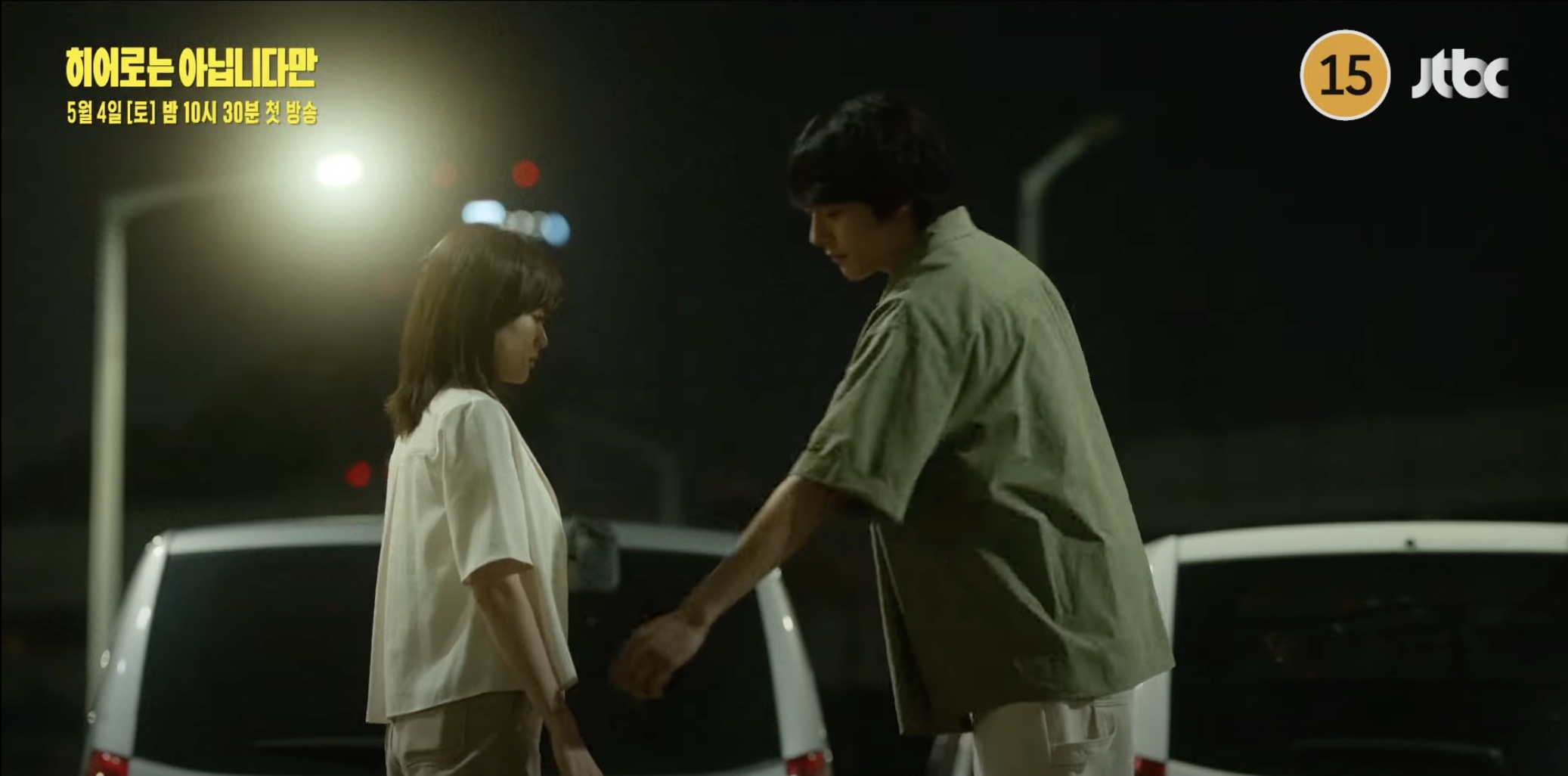
![[Drama Chat] The drama you didn't know you needed](http://d263ao8qih4miy.cloudfront.net/wp-content/uploads/2024/02/mmh1516_0-scaled.jpg)
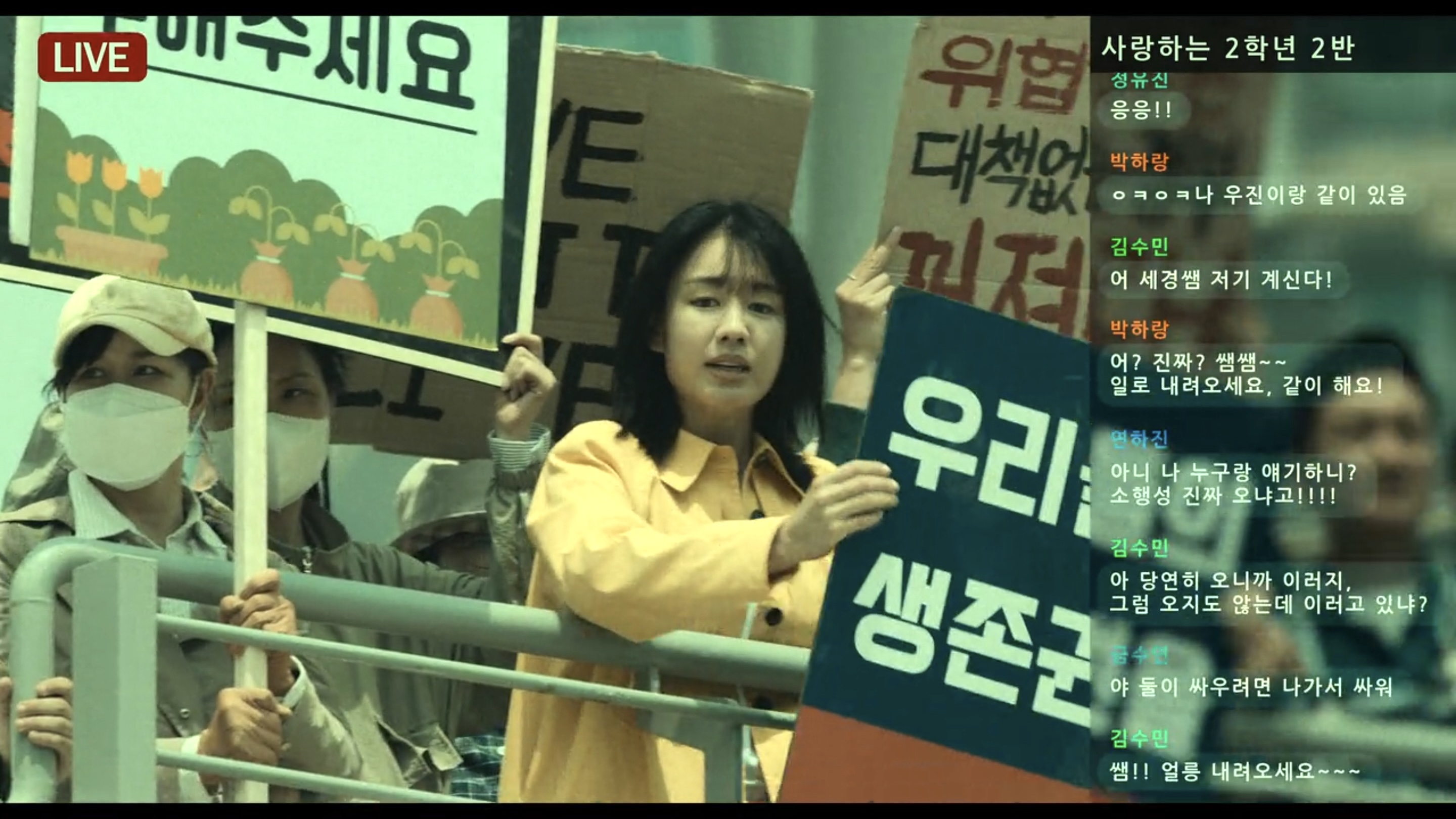
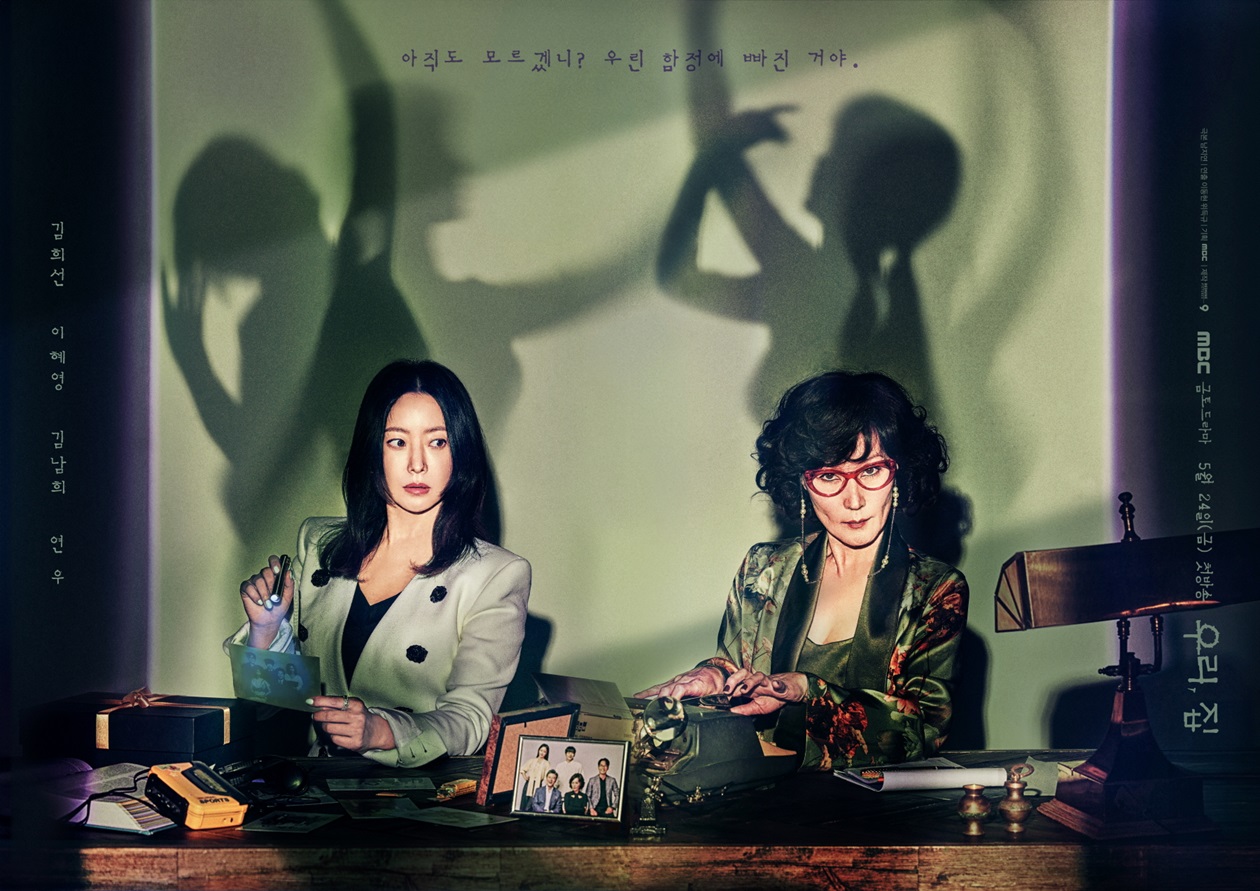
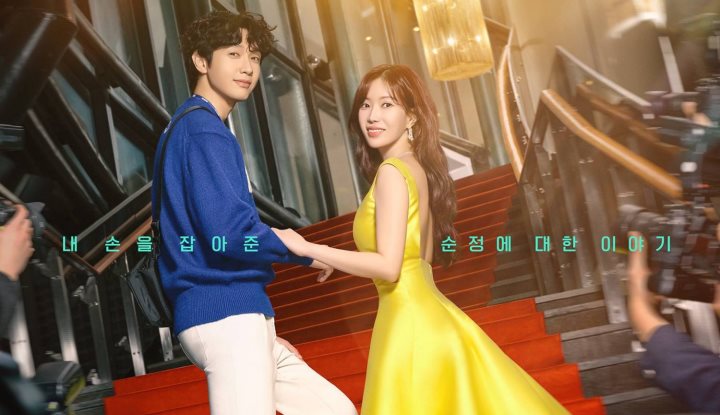
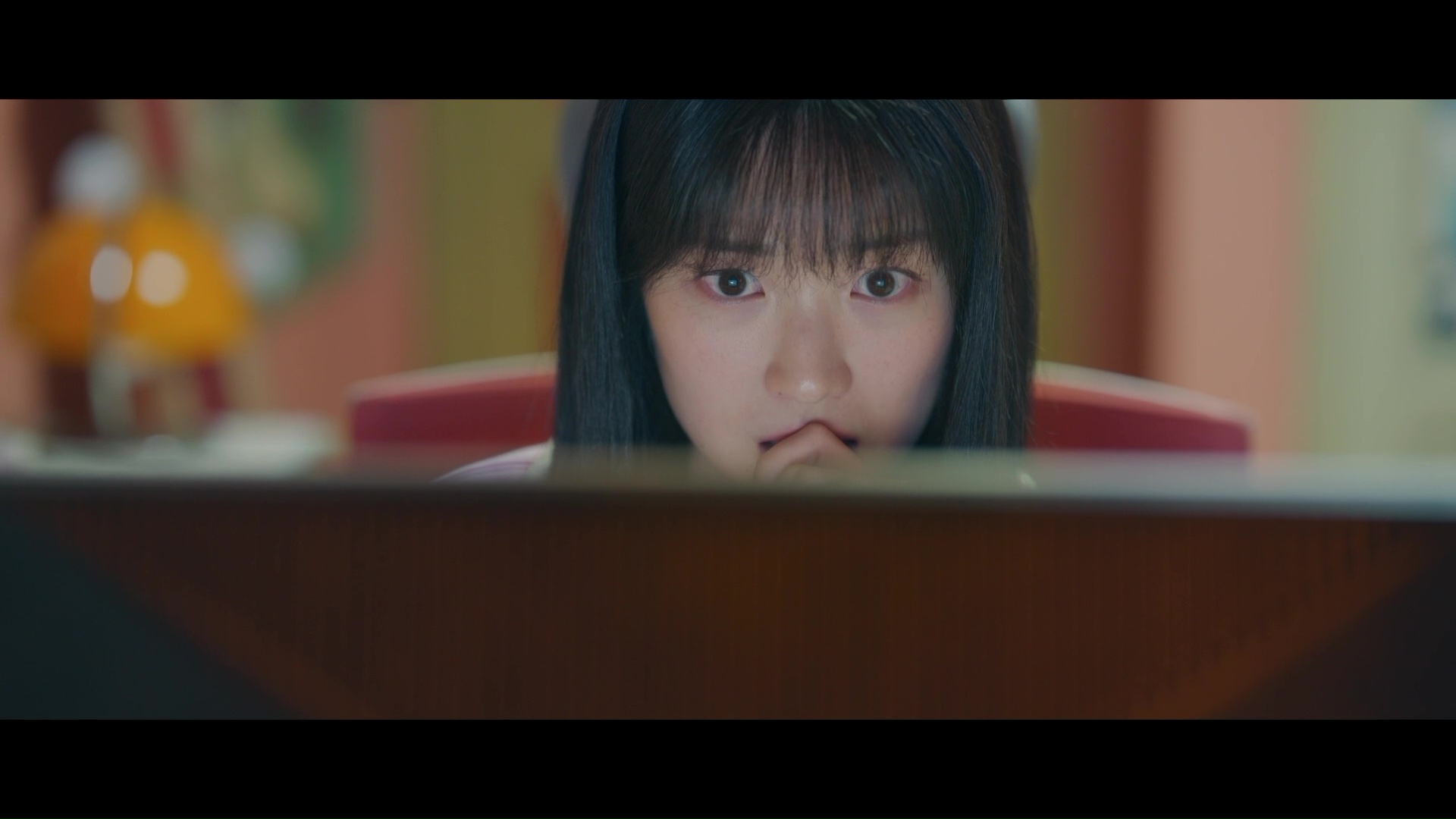
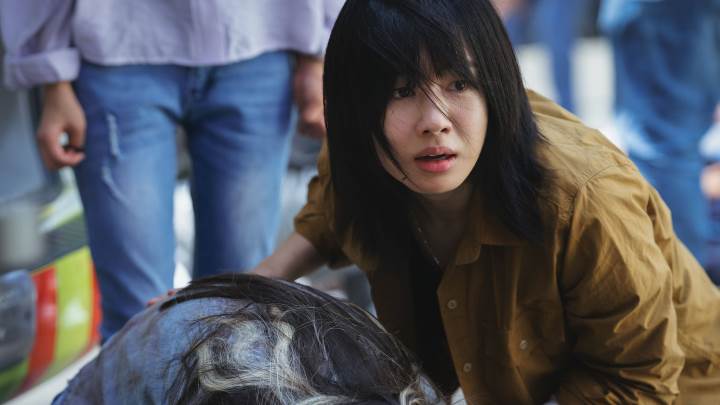
Required fields are marked *
Your email address will not be published. Required fields are marked *
1 Ivoire
August 25, 2013 at 4:16 AM
Thank you so much for the movie review.
Required fields are marked *
2 Dramafed1782
August 25, 2013 at 4:22 AM
Thank you refresh_daemon. I have always wanted a review of this movie after watching the TV drama. I always feel stories like this at least manages to give a bird's eye view on Confucianism. Thank you again :)
Required fields are marked *
Peridot
August 25, 2013 at 4:35 AM
May I ask where you watched the t.v drama? I've been trying to look for it. Thank you :)
Required fields are marked *
eny
August 25, 2013 at 4:46 AM
I think the TV drama is modern drama with little flashback old era, the title is Delightful Chuhyang/My Sassy girl, the lead male is Jae Hee.One of the best korean rom-com.
I don't know if there's another tv drama adaptation
Required fields are marked *
Peridot
August 25, 2013 at 7:31 AM
Oh, I was actually referring to the four episode period piece. I though that was the drama that Dramafed1782 was writing about. My mistake :) I've seen a little bit of Delightful Girl Chun Hyang. Thank you, though :)
Required fields are marked *
hazzelle
November 19, 2014 at 11:11 PM
what attitudes and values did you lear about this story ???
Required fields are marked *
Dramafed1782
August 25, 2013 at 5:07 AM
Delightful Girl Chun Hyang was the first Hong sisters drama. It was more like a parody/comic look/love story which had Han Chae Young as Chun Hyang, Jae Hee as Mong Ryong and Uhm Tae Woong (sighhhhh!!!!!) as the villain Byun Hak Do.
This was my first k-drama which I saw on You Tube but the clips are no longer there. However, I guess gooddrama or epdrama should have them now.
Each episode ended with a great kicker comic scene which was set in the Joseon times whereas, the episodes storylines itself were based in the current age.
Hope you do find them online!
Required fields are marked *
Peridot
August 25, 2013 at 7:54 AM
Thank you Dramafed1782. I saw a little bit of Delightful Girl Chun Hyang without subtitles. I made a mistake, however, because I thought you were referring to the four episode retelling of the story, Bangja chronicles. I've actually been trying to find that drama. I hope that someone here can help me :)
Required fields are marked *
Dramafed1782
August 25, 2013 at 2:17 PM
I am sorry I couldn't be of much help. I jumped on the train of Korean movies pretty late. Though I have watched the parody drama I have always wanted to know more about Korean folktales told through pansori like how refresh_daemon had done about Sopyonje.
But it's very hard to get these movies online since I am not based in US.
I haven't come across the Bangja chronicles. If I come across any forums with the details of the drama, will try posting them here.
Peridot
August 25, 2013 at 2:30 PM
Thank you. I appreciate your help :)
Required fields are marked *
3 Tulipsaki
August 25, 2013 at 4:28 AM
So how The Servant turn this story on its head?
Thank you for explainingg: this is the first time the Chunhyang story clicked in my head.
Required fields are marked *
refresh_daemon
August 25, 2013 at 8:55 AM
The Servant, in particular the film (방자전), turns the story on its head by reinterpreting the legend so that the protagonist is Mongryong's servant, Bangja, who is actually the one whom Chunhyang loves. However, Chunhyang sees the potential for social advancement with Mongryong and opts for an official relationship with him instead, keeping Bangja as an ongoing affair on the side.
It's an interesting story since it reflects some of the tension in modern Korean relationships and especially the sometimes seemingly limited relationship choices women still have in Korea. It upends the original Chunhyang story by breaking any notion of her faithfulness and replacing her presumed purity with twin warring desires, making Mongryong a total cad and making Bangja both a central character and adding complexity to him.
Required fields are marked *
Oyabun
August 25, 2013 at 11:33 PM
Banja is a useless movie with confusing plot and despicable characters. The only good film about this movie are the nude scenes.
Required fields are marked *
4 aceyyy
August 25, 2013 at 4:44 AM
Thanks for the review! This is the first time I'm reading one of your reviews of a movie I've seen before, and I must say suddenly the experience is a lot more accessible and less opaque.
Required fields are marked *
5 windsun33
August 25, 2013 at 5:10 AM
I do not like the format of the film, but it got me wondering why there are so few movies and TV shows that even barely criticize the idea (or quite often the perversion of) Confucianism?
I did some digging around on the internet, but I could not find a single example of any such film. Which makes me wonder - is there actual censorship about such subjects, or is it a more of a "don't make waves" type of thing?
I did find a couple of tidbits - in one instance on a TV show there was a scene that was censored out because "it showed disrespect for elders" (with no further details). Reporters Without Borders overall gives South Korea a very poor grade on censorship, citing such stupid things as banning K-pop songs that mention alchohol, while allowing dozens of TV dramas to show Koreans getting totally wasted and passing out in "family" dramas.
Required fields are marked *
PeepsLeAwesomePotato
August 25, 2013 at 6:32 AM
Yes, it's a don't make waves thing. Asians are a collective society.
And also, as an Asian, you grow up with it, so you don't really see what the problem with it is (until you meet such a problem as forbidden love of course).
For example, since young, Asian children have been told to "respect the elders", "greet your elders" and "don't talk back", so it just simply becomes a way of life. Well, the above idea is based on the fact that elders have lots of wisdom and so the younger ones have to respect them and their wisdom. Although, personally, I think it's been twisted over the years to include blind acceptance of rubbish spewing from bad (unwise) grandmas.
And that's something similar to Confucius' idea of respect. Initially, it was the wife must respect her man and vice versa and the children must respect their parents and there must be respect all round for harmony to prevail. It just got twisted to mean that men are above women and generations above can dictate generations below, because, hey, since long long ago, people have only seen what they want to see and hear only what they want to hear. And when you gradually stuff the upper echelons of society with men, you know whose ideas win in the end.
Required fields are marked *
PeepsLeAwesomePotato
August 25, 2013 at 6:37 AM
I mean that most Asians belong to collective societies and that South Korean is one such society. In other words, no one tips the boat or 'backstabs' others. If someone did, you get an 'oh snap, shit just got real' hoo ha.
Required fields are marked *
windsun33
August 25, 2013 at 7:19 AM
That is kind of the impression I got from watching far too many k-dramas. After a while what is interesting is not just what is in the films, it is what is NOT in the films. Certain themes are hammered over and over again in almost every drama - such as using honorifics - even to the point where in show an older twin (by like 5 minutes) demanded that the younger one "not talk down" to him.
Other things that never come up - especially in the last administration - is any criticism of the government, any implication that elders might actually be stupid, or any scene where the kids actually tell the parents/other elders that they might actually be wrong.
I am far from being a scholar, but from what I read it seems like S Korea has almost made a state religion of neo-Confucianism - what one Taiwan writer described as "Confucianism for the Elite". It appears that a lot of what is written about in the US has a very different approach - generally taking the idea of mutual respect, not one sided as in Korea.
Required fields are marked *
refresh_daemon
August 25, 2013 at 9:42 AM
There are a few threads to tease out here:
1) Television, because of its general accessibility and consequent censoring, is more often going to be an art form that follows, rather than challenges the status quo. If you watch more Korean film, especially the less commercial kind, you're going to find more active resistance or critique to hierarchical society.
2) "Confuciansim" as a belief system isn't actually something that is on the minds of most Koreans today. It's a rare moment when you'd find anyone quoting Confucius or making reference to the Five Bonds. The impact of having centuries of Confucianist society preceding modern Korea, however, has had what seems to be an indelible effect on the culture. I would say that, rather than Confuciansim, Confucian inspired hierarchy is actually ingrained into Korean culture. Everybody grows up with it and the language itself is built on it with all the honorifics present, that it's simply just the way things are. Check out what The Korean at Ask A Korean has to say on the impact of Confucianism on Korea: http://askakorean.blogspot.com/2011/04/confucianism-and-korea-part-iv.html
3) Another thing you should be aware of is that the government actually has direct control over two of the three major television networks, KBS and MBC, with KBS being a government entity and MBC being majority owned by the government. Both networks chief personnel are subject to being appointed by the office of the president. While this didn't stifle criticism right away, after the whole US beef import scandal with the Lee administration, the administration did kill shows that were critical of it at MBC. Ask a Korean has a little bit more on that as well: http://askakorean.blogspot.com/2012/06/media-strike-in-korea.html
Required fields are marked *
windsun33
August 25, 2013 at 12:36 PM
3. Interesting. I was not aware that the government actually had that much direct control, but it explains a lot of things.
2. I did not mean to imply that Koreans went around quoting Confucius, but that much of the behavior is influenced quite a bit by centuries of it.
Watching all the glitzy kpop and kdrama it is also very easy to forget up until just a couple of decades ago that SK was basically a fascist dictatorship, and a lot of the government controls are still in place - as one dissident described it - a silk glove covering an iron hand. I suspect that few realize also just how fast social change has come to S Korea, and there is still a lot of adjustment going on. The hierarchal system have to change, but it might take 3 or more generations.
bd
August 27, 2013 at 1:06 AM
@winsun33
Very true.
Also, Korea (esp. the South) was very much an agricultural society until it started to change in the late 60s-early 70s, so people's expectations of Korea to be exactly like the US/Canada or Western Europe is a bit unrealistic as they had undergone industrialization nearly a hundred years earlier.
bd
August 27, 2013 at 1:02 AM
Neo-Confucianism really hampered Korea, as it did Han China.
Required fields are marked *
Peridot
August 25, 2013 at 7:45 AM
Hi Peeps :) I am glad that you brought up the idea of respect for elders being twisted over the years. This was something that I wanted to bring up in the last Open Thread but my plans didn't work out :) I find that people may criticize the U.S (and the Western world in general) for not having a sense of respect. It is true that there was a time when English included more honorifics and more formality/nuance of language (depending on the relationship dynamics of the speakers). Now, there is a greater deal of informality that is not necessarily considered disrespectful. I personally do not feel comfortable addressing older people or people whom I do not really know by their first names (due to my upbringing), but this has become more commonplace. I also think, however, that both a rigid adherence to honorifics and an outward deference toward seniors/elders do not mean that the person who speaks respectfully is necessarily decent or respectful at heart. To me this represents going through the motions and performing certain expected behaviors. True respect is internal. And I also believe that true respect is a two way street. What I observe from dramas, however, are those who are older or in senior positions abusing/disrespecting those below or younger than them. But those who are younger (or who are juniors in the hierarchical system) are supposed to be quiet and say nothing at all (if they try to, they are quickly shut down). In many cases, its like they hope that by becoming door mats they will eventually be treated with kindness (I'm afraid that being a doormat will only make you more of a doormat in the eyes of others). Sorry, didn't mean to be long-winded! I just get upset when people assume that Westerners have no sense of respect. I personally do not think that way of myself or others whom I know.
Required fields are marked *
windsun33
August 25, 2013 at 8:08 AM
A while back I came across a Korean cartoon (by a Korean-American).
It showed some typical k-drama type scenes with thought bubbles of what they were really thinking. There were 10 of them but I only recall a few, but they went something like this:
1. guy groveling on floor begging forgiveness (thought bubble = your feet smell like dog poo)
2. girl bowing to MIL (thought bubble = You old hag, I am just waiting for you to die for your money)
3. CEO or something similar walking to building with tons of employees lined up to bow. (thought bubbles from all = You stupid jerk, if we were not all wasting time making you feel good maybe the company would not be going under).
Very interesting article here on both Confucianism & women's status in Korea http://www.kinseyinstitute.org/ccies/kr.php
Required fields are marked *
Peridot
August 25, 2013 at 12:55 PM
:) That cartoon must be funny. Thank you for the link :)
KimYoonmi
August 25, 2013 at 10:33 PM
Might seem petty, but Asia is a continent (well part of a larger one). So it's kinda a huge sweeping statement to sweep all of Asia under Confucianism.
There is Iran... Turkey... Russia...
so be aware of not using "Asia", the continent like "Africa" which is not a country, but a continent.
Required fields are marked *
PeepsLeAwesomePotato
August 26, 2013 at 6:24 AM
Sorry, East Asia then. And a little bit of South East Asia.
Required fields are marked *
6 nokcha
August 25, 2013 at 5:41 AM
I remember watching this film in a theatre in Santa Monica, the Nuart, I think, and I was sitting next to this very old halmoni. She cried throughout the whole film...I enjoyed the film very much. I had never seen nor heard pansori nor was I familiar with story. I'd never seen anything like it, and watching through my novice eyes and the grandmother crying next to me, really heightened the experience. I looked high and low for the film on dvd and finally found it several years later. Unfortunately, watching again on dvd kinda left me blah...but I won't forget how I felt when I first watched it.
Required fields are marked *
7 Newbie
August 25, 2013 at 6:04 AM
Ah, Jo Seung-woo's debut. Love this man.
I liked the pansori frame, it was my first contact with this art form and I really enjoyed the combination of Pansori and movie.
Required fields are marked *
8 snow_white
August 25, 2013 at 6:14 AM
I have seen the drama version..Delightful Girl Choon hyang and it's simply AWESOME!!
Required fields are marked *
9 CaroleMcDonnell
August 25, 2013 at 6:31 AM
I'm getting goosebumps. This was the first Korean film I ever saw (to my recollection.) I saw it in the local arthouse. It became an instant favorite and began my love of Korean culture. I cannot emphasize how important this movie is to me.
Thanks for bringing it to the attention of your readers
Required fields are marked *
10 CaroleMcDonnell
August 25, 2013 at 6:58 AM
just finished reading the review. Gotta say that i didn't mind the redundancies. The redundancies have a charm of their own and carries an almost picture book charm where ear and eye both receive information on a particular event. Redundancies in art have a long tradition in storytelling. Whether it's repetition of lines, echoes of thought, contrasting of rhythms. It's part of the joy of storytelling and whether it's Hebrew psalms, African-American preaching, a children's picture book, or a fairytale, redundancy, echoes, and repetitions are expected. Playing with redundancy in cinema is a courageous act. Especially because the modern movie audience decry excess. But if it's the filmmaker's vision, he should go with it. And if the vision manages to call our attention to the breaking of the diegesis, all the better. It's fun not only to love a story but to stand aside and to see that one is enjoying the craft of the filmmaker. So much of the fun of Chunhyang is watching the performance of the pansori, the performance of the actor, and the performance of the director. If a film can turn me into a lover of a culture and make me get totally into Korean drumming and pansori, it must've worked. At least for me.
Required fields are marked *
Peridot
August 25, 2013 at 7:50 AM
Hi Carole. It seems that I will have to find the time to watch this film :) I agree with your observation about redundancy in storytelling. It is definitely present in many folk traditions/folk art forms.
Required fields are marked *
Jaeminuf
August 25, 2013 at 11:56 AM
I also didn't find the "redundancies" to be such. I found them highly powerful, like layering and with each voice appropriating a power from joining, segueing, taking over from... In the beginning, I was very aware of the pansori format - as if I was to be respectful and allow myself to experience an "art form." I think that was intentional. But then, as the story progressed, it seemed to weave together with the visuality of the cinema. By the time the story neared the climax and the pansori singer's voice and Chunhyuang's voice doubled, I was totally in love with the film. The doubling of their voices so that they were almost indistinguishable yet clearly doubled in solidarity - I still get tremors hearing it in my head.
So yes, for me, rather than redundancy, I heard it as doubling, collective power, collective identification. The voice was the medium through which I found myself sliding into the protagonist (which for me wasn't Chunhyang but a sort of me as a part of some collective everyman/woman.)
I love this film. I own it. I've not yet seen Sopyeonje but I can't wait to do so.
Required fields are marked *
yukiN
August 26, 2013 at 8:58 AM
Many southern states are similar to Korea in that they usually add sir or mam.
Tho I'm Americanizing, I still have a hard time not to repeat myself 3 times.
I'm 90% Korean and 10% Chinese. I use Japanese name because of an anime character I liked.
Required fields are marked *
yukiN
August 26, 2013 at 9:04 AM
Forgot to say, Some southern novelists repeat more than 3 times, tho 3 seems to be the most popular number of repetition. Father, Son and Holy Ghost
Required fields are marked *
KimYoonmi
August 25, 2013 at 10:44 PM
In story, once is an accident. Twice is a coincidence. Three times it means something.
Korean language itself has a lot of repetition for emphasis.
It is English that imposes those rules of cut down repetition. And it is that ideal which is shaping much of Modern cinema today. (And English does this mainly because it is a language with an unmarried father and mother. They often fought, you know. And then the German wanted their offspring to be Latin. Properly Latin, which just made English a little brat. And then it got spoiled when it was toured around the world--not once, but twice and then declared Ruler of languages, despite it's many psychological problems.)
But if you study other languages--repetition makes life. It makes emphasis and color. The call and refrain, the call and the echo. It makes the story sing properly. The reuse of words, but the change in meaning can add nuances to language. But English loves squashing it flat. Spoiled brat it is. Surgeon's skill or nothing.
Required fields are marked *
yukiN
August 26, 2013 at 7:49 AM
I'm Americanizing, I repeat only twice. It's the truth.
Required fields are marked *
Jaeminuf
August 26, 2013 at 10:46 PM
LOL!!! Love, love, love.
Absolutely agree re: the value of repetition, the repetition in Korean language, and your take on the evolution of the English language.
Philosophers love repetition too. Nietzsche. Deleuze. And Derrida.
Required fields are marked *
11 Spygurl5
August 25, 2013 at 6:59 AM
I have not seen this movie, but I don't know why the lead actor here in the screen caps kept reminding me of Kim Bum. He looks almost like Kim Bum to me.
Required fields are marked *
ck1Oz
August 25, 2013 at 8:03 AM
JSW is one of my favourite musical actors in Korea. He is also older and more famous. I would say Kim Bum being younger- is the one who happens to look like his older sunbae.
Required fields are marked *
Newbie
August 25, 2013 at 9:00 AM
Everybody who hasn't seen anything with JSW should at once hunt for his work and check it out. He might be my favorite Korean actor out there and lots of his movies are so worth watching. His one drama stint Horse Doctor might be the exception to this rule.
He is a fantastic singer and his heart belongs to the stage. Here a rehearsal for Hedwig.
http://www.youtube.com/watch?v=4adsEz3z-tA
My favorite song from his movie Go Go 70 with Shin Min-a
http://www.youtube.com/watch?v=gNU0ZlxvNjg
OK, I'll stop now or my drool will ruin my keyboard.
Required fields are marked *
Kiara
August 25, 2013 at 4:30 PM
Horse Doctor is one of those boring sageuk I had to endure for this man and Kim So Eun.
Love him in films and on stage. One of my favorite from Jekyll & Hyde.
http://www.youtube.com/watch?v=8rgkqmKxpxw&list=PLE7FA3C65E09EB616&index=16
Required fields are marked *
Newbie
August 26, 2013 at 6:45 AM
Lol. Of course I watched Horse Doctor, too. All 50 eps - just for this man.
My dream would be to see him on stage. Living in Germany it might become a liiiiittle bit difficult though.
Jaeminuf
August 26, 2013 at 10:47 PM
Yup, Horse Doctor, just for him. Great to get Kim So Eun to boot.
bd
August 27, 2013 at 12:53 AM
Yep, Jo Seung-woo is not only a fine musical actor, he's a fine actor period.
Required fields are marked *
12 sundubu
August 25, 2013 at 7:30 AM
Thanks so much for these great film reviews! I love dramas, but I love films too and I'm really enjoying learning more about Korean films through your reviews. Please keep them coming!^^
Required fields are marked *
13 athena
August 25, 2013 at 8:09 AM
I particularly watched this pansori version in Youtube..it was very different and Joo seung Woo was very young then...Thank you for your review it made me happy that I was able to watched it and understand from your point of view.
Required fields are marked *
14 Lord Byron
August 25, 2013 at 8:18 AM
"Joseon society, a five-century-long dynasty that is the direct predecessor to modern Korea"
Correction:
It is not a "direct" predecessor. The connection was forcefully broken by the 36-year occupation of Korean Peninsula by the Japanese Empire, during which Joseon dynasty came to an end without launching a new one.
Coincidentally, the day of formal annexation (08/27) as well as liberation (08/15) occur in August.
In the US today, a campaign to keep several controversies from being white-washed by modern Japan is just beginning, regarding Dokdo Island, East Sea and Comfort Women, all of which originate from the occupation. And the global audience is beginning to pay attention to the issues.
We cannot afford to muddy the historical facts, no matter how unintentionally.
Required fields are marked *
refresh_daemon
August 25, 2013 at 8:41 AM
Well, yes, I suppose I should have specified that I was specifically talking about modernity as societal state and not as a temporal one.
After all, I think the Korean Empire that directly followed Joseon before quickly getting crushed by the Japanese could also be called a direct predecessor if we are agreeing that rule under Japanese occupation was not a legitimate one or we could say that the provisional government that followed Japan's unconditional surrender and withdrawal from the peninsula before the divide into North and South (pushed by the Soviet Union and United States) would be the actual direct predecessor, but the Empire, Japanese occupation and on all seem to have elements of modernity or modernization, while Joseon is distinctly a pre-modern agrarian society.
You're right, we can't forget significant matters of history like the occupation, so perhaps more clear and precise language is necessary.
Required fields are marked *
windsun33
August 25, 2013 at 8:47 AM
The Japanese have been superb at whitewashing history - even my Japanese wife agrees with that.
In some cases it is almost as bad as the idiot Holocaust deniers - there are still many Japanese that think things like the Rape of Nanking are highly exaggerated and/or propaganda. Every country has their dirty laundry, but the Japanese have done better than most at keeping it hidden.
For some other interesting examples, just Google "Japanese denial".
Required fields are marked *
yukiN
August 26, 2013 at 8:49 AM
Washing history, like when Washinton state clean itself of Asians. Business as usual, will the human race ever become humane?
Required fields are marked *
windsun33
August 26, 2013 at 11:45 AM
I doubt it, though I think it has gotten somewhat better it still has a long ways to go. Just witness the current situation in Libya and Egypt, and not long ago the riots in China about some totally insignificant islands that the Japanese also claim.
But the huge difference between the US putting Japanese-Americans in concentration camps is that the US at least admitted it was "a really bad thing". And there have been at least 15 movies and looks like another 40 or so TV shows or series about it, and numerous books.
How many Japanese TV shows have covered the Rape of Nanking, or the occupation of Korea, or the Bataan Death March?
Required fields are marked *
bd
August 27, 2013 at 12:57 AM
War museums in Japan actual try to portray Japan as the "victim" during WWII and the right-wing politicians tried to get Japanese actions on Okinawa "whitewashed" in the history textbooks but backed down when the Okinawans protested.
Some of the things that have been coming out of the mouths of high ranking Japanese politicians lately have really been outrageous.
15 Cheliwel
August 25, 2013 at 8:28 AM
Nice film. I actually watched this film after i saw Delightful Girl, chunhyang. I was curious where the series was adapted from.
Required fields are marked *
16 calgary
August 25, 2013 at 8:35 AM
whatever happened to the actress Lee Hyo-jeong?
Required fields are marked *
refresh_daemon
August 25, 2013 at 9:52 AM
I did a little internet searching and it seems like the only other work she's done is on a 2007 Korean drama called "Snow in August" (8월에 내리는 눈) as a minor character.
Required fields are marked *
17 malta
August 25, 2013 at 8:49 AM
Thank you so much. This is a wonderful review. Do you know where we can find this film?
Required fields are marked *
refresh_daemon
August 25, 2013 at 9:58 AM
If you're based in the United States, I believe Kino Films or maybe New Yorker has a DVD release of it so you should be able to purchase it online (Amazon or Ebay for certain). Not sure about streaming or download though.
Required fields are marked *
PollyRose
August 25, 2013 at 12:56 PM
For the US, Netflix has this and more available to stream.
Required fields are marked *
18 bluel
August 25, 2013 at 10:37 AM
I love your reviews. Thank you for always keeping us viewers in mind!
Required fields are marked *
19 wwjaustendo
August 25, 2013 at 11:41 AM
Thanks for the review! Very informative. The images are very beautiful as well.
Required fields are marked *
20 Gwinna
August 25, 2013 at 2:06 PM
The problem with this movie is that the DVD only has subs for the dialogue, and not for the pansori.
Required fields are marked *
21 Kiara
August 25, 2013 at 3:37 PM
As always, thank you so much for the insightful review and for answering our questions and comments. I so love Jo Seung-woo and two film reviews in a row is a real treat for me :). Now I must watch this for Seung-woo and I love Korean Korean folk-tales, legends and anything related to ancient Korea. I've read many of the 3 kingdom era tales in Samguk Yusa and really enjoyed it. I also stopped eating egss after that lol.
Required fields are marked *
22 Cutesy
August 26, 2013 at 7:07 AM
I watch this movie last June of I remember right, well its totally amazing and funny also. Full of heart and Chunyang is Daebak. She is one hell of a woman.
Required fields are marked *
23 ichahan
August 28, 2013 at 11:19 AM
i watched this movie in arirang early this year (so sad they stopped their K-Movie Close Up. actually i really enjoyed the show because they aired some classic (yeah not really classic) movie like Ditto (Kim Ha Neul, Yoo Ji Tae, Ha Ji Won), Hwaeomkyung (Shin Hyun Joon), Sopyeonje, etc. actually i didn't really understand about this movie (it's basically about Chunhyang and Mongryong's love story and the annoying governor and of course Delightful Girl Chunhyang is based of this story) but it's really awesome and the guy who sang the pansori in this movie was truly great (it's rare to see some musical-like movie like this).
Im Kwon Taek PD really great!!! Jo Seung Woo also really good although he was just a rookie back then.
Required fields are marked *